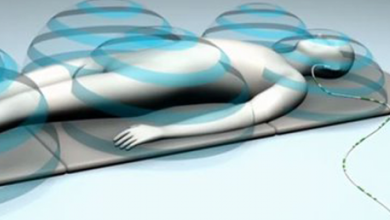Protein Powders – What Do You Need to Know about Them?

In the world of supplements, protein powders have gained a lot of recognition. You will know some brands even if you are not a muscle builder. Some people consume it to build their muscles, while others consume it because they cannot get adequate protein from their diet.
Supplements can help replenish the deficiency, but they cannot replace food. If protein is not in your diet, the supplement alone will not be able to maintain an adequate level of protein. There are two types of protein – animal-based and plant-based. Both types of protein supplements are good for your health.
Protein consumption has been mainstreamed as they tend to help lose weight. Studies suggest that a high-protein diet is linked to weight loss because it keeps you feeling fuller for a long time, which cuts the intake of food. Not to mention, you must have heard that it helps lower the rate at which muscle mass you lose as you age.
However, dieticians have noticed that people have fuelled the demand for protein supplements without realising that they consume more than they need. Muscle strength is not evaluated by muscle building, so the amount of protein you take from eggs, meat, chicken, fish, soybeans, peas, beans, and legumes is more than sufficient.
What is protein powder?
These are proteins in powder form extracted from soybeans, peas, rice, potatoes, and milk. The powder may consist of other ingredients such as artificial flavours, added sugar, additional vitamins and minerals and thickeners to make it taste friendlier.
The amount of protein per scoop may vary from 10gm to 30gm. Supplements advertised to promote muscle building contain more protein compared to those advertised for weight loss.
What are the risks linked to protein supplements?
Most of the people rely on these supplements as they want to build muscle. The higher the protein they consume, the sooner the muscle mass they gain. However, medical experts are not in favour of bodybuilding.
These products have a very high demand just because all men typically want to look burly, but the question is if they are safe. You cannot rely on marketing, as vendors will try to sell you out, no matter what.
Here are some risks linked to protein supplements:
1. It is just a product like a lot others
Manufacturers are responsible for the safety and labelling of a product. It is not a prescribed drug that undergoes strict clinical trials before being launched, so there is no way to determine whether the claims that manufacturers make are genuine.
As is the case with chocolate cookies claimed to be enriched in several vitamins and minerals, markets can make any claim about these supplements to draw the attention of customers. It means the claims they make could be far from reality. If you consume these supplements, you do it at your discretion.
2. Long-term effects are not known
Some of the studies have shown that the excess consumption of protein supplements could lead to digestive health issues. However, the data is not sufficient to arrive at a conclusion. Further, long-term side effects, if any, are not unveiled as yet.
Whey protein is particularly known for causing digestive complications as it is extracted from cow’s milk, and you may be less tolerant to lactose, a kind of sugar found in the milk.
3. Higher amount of added sugar
All protein powders consist of some amount of sugar even though it is labelled “no added sugar”. Some of them may have little sugar, while others may have up to 24gm per scoop. On the one hand, these supplements are claimed to have a vital role in weight management. On the other hand, they are rich in added sugar, leading to unhealthy blood sugar spikes and weight gain.
4. They contain heavy metals
A recent study has revealed that protein powders could contain some kinds of metals like lead, cadmium and mercury, used to make plastics, pesticides and other contaminants, which are linked to deadly diseases like cancer. Surprisingly some protein powders had a significantly higher amount of such toxins, more than the recommended limit.
It is always suggested that you carefully check the labels before buying. These supplements can cause wreak havoc on your health if you consume more than the recommended limit.
What damaging effects are you likely to experience by taking extra protein?
The more protein in your diet, the more you will have to get rid of. Many of you do not realise the health risks associated with the consumption of protein supplements. Here are some health problems you will likely suffer:
1. Kidney problems
Early on, you will feel better as symptoms do not immediately show up, but as time fleets by, you will eventually realise that the damage is already done to your body. With the consumption of high-protein diets, your kidney health is at risk.
These supplements are commonly popular among gym-goers as they want to build muscle quickly. Remember that it is a gym supplement that comes under food law, so it does not need to be labelled specifically as medicine to inform people what is in it.
2. Bad reactions
Some people, especially those who have been on supplements for years, have disclosed that they have experienced bad reactions like trembling and shaking, followed by sulky mood and high levels of anger without reason. Studies have concluded that supplements are enviable products based on the evidence collected from surveys.
However, research has also figured out that these health concerns arise only when people consume more than the recommended daily intake.
Give food a priority
Supplements could be a good way to recover from the deficiency of protein, but it is likely that you will become deficient in them. Human beings are adapted to low protein, requiring it to make up just 10% of the total calories.
Instead of gobbling supplement drinks, you should try to get protein from food as much as possible. In addition to pulses, it is rich in eggs, a handful of nuts, cow milk and chicken. However, food is safer than supplements, which does not mean you will switch to a high-protein diet.
Studies have found that a high intake of protein from food, particularly lamb, beef and pork, can cause chronic illnesses like cancer. Red meat and processed meat are also linked to heart health. The former is high in iron, and the latter is high in salts. Both are linked to increasing the risk of heart problems.
High-protein diets can also affect the bacterial flora of your gut. Whether you take excessive protein from a plant-based or animal-based diet, all these bacteria tend to promote the growth of tumours.
The bottom line
Practically, you do not need to hinge on protein powders because you can get enough of it from your food. However, you do not need to consume an excessively protein-rich diet. Otherwise, you will end up taking a toll on your health and funding your medical bills with bad credit loans with no guarantor.
Before you consume a protein supplement, consult your doctor first.



